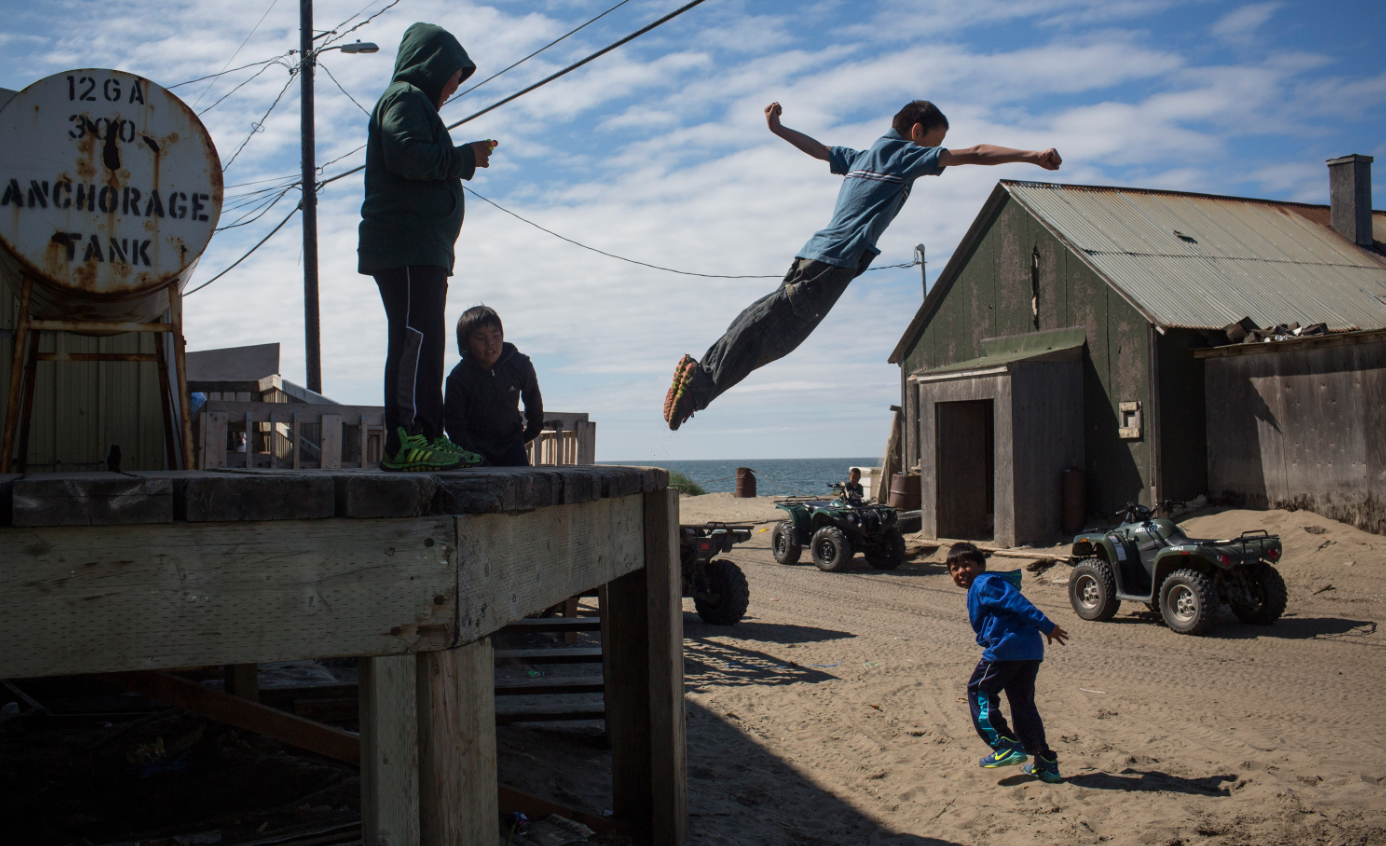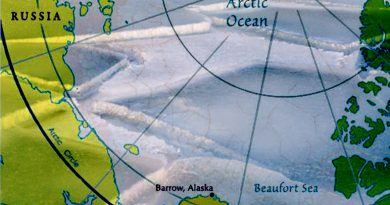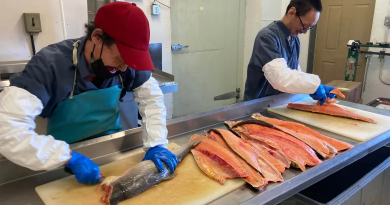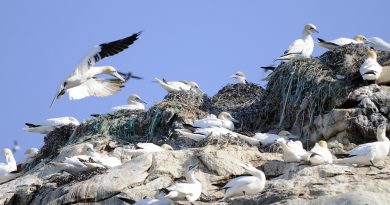For Alaskans in Paris, climate talks hit home

After two weeks of talks, representatives from around the world hammered out the final details of a global climate change agreement in Paris. Negotiations stretched past the original deadline.
Among the thousands of people who gathered over the last two weeks to weigh in on the climate talks were several Alaskans.
Esau Sinnok is 18, he’s from Shishmaref, and during his time in Paris, he’s been interviewed by — it feels like — just about every major news outlet in the world.
“…from National Geographic… from CNN… and tomorrow I’ll be in an interview from Al Jazeera…” he said.
Sinnok is one of several Alaskans in Paris, where they were greeted as messengers from the front lines of climate change — though there’s also another predictable reaction.
“This old lady, French lady, asked where I was from, and I said, ‘I’m from Alaska,’ and her eyes just bulged out of her head,” Sinnok said, laughing.
Shishmaref’s climate story
It was a three-day trip from Shishmaref to Anchorage to Minneapolis, and finally to Paris. Sinnok went as a Youth Ambassador for the Arctic Council, and as a representative for the Sierra Club and the Indigenous Environmental Network.
He went to tell world leaders his stories from home: how his barrier island is losing ground to the sea; how ice forms later in the year, making hunting unpredictable; and, how for the first time in memory, he said, they’ve had rain in the winter.
He hoped to add urgency to the talks.
“I know that they’re doing their best in those meetings, but I feel like what they’re talking about won’t be in play for the next few decades,” he said. “And we need something done right now, because in 20, 25 years, Shishmaref will be under water.”
Alaska stories resonating with other communities
Maija Katak Lukin is no stranger to press coverage, either. The Kotzebue city council member was mayor when President Obama visited this fall, bringing with him a global spotlight.
Lukin was invited to Paris by the State Department, and spoke on a panel with Interior Secretary Sally Jewell about what’s happening in the region around Kotzebue.
“I said, you know, we don’t call it a climate change adaptation plan, we call it a survival plan,” she said.
Lukin said she appreciated being able to tell her story, and it was fascinating to hear how communities from the Marshall Islands to Scandinavia are coping with a warming climate.
But every once in a while, she said, someone would ask — well, why do you live there? Why not just move?
“You know, it’s kind of difficult to stay diplomatic when somebody asks you, ‘Why is your life important?’” Lukin said. “Because that’s really what they’re saying.”
Princess Daazhraii Johnson works with the environmental group REDOIL. Speaking via Skype from her hotel room in Paris, she said she doesn’t want her state to be known only as the forefront of global warming. Instead, with its far-flung communities and often challenging environment, she hopes Alaska can become a leader in a different way — as a laboratory for the kinds of alternative energy systems, collaboration and ingenuity that will be needed to cope with a warming world.
She said, “I feel like we have the opportunity right now to really be a model for what is possible.”
Related stories from around the North:
Canada: COP21 – View from Canada’s Northwest Territories, Eye on the Arctic
Finland: Mixed reactions in Finland to Paris climate accord, Yle News
Greenland: Will COP21 turn down heat on Arctic?, Eye on the Arctic
Sweden: Positive reaction to climate deal in Sweden, Radio Sweden
United States: Cleaner atmosphere means more Arctic ice melt: study, Alaska Dispatch News



